The allure of the open road, the sizzle of fresh ingredients, and the freedom to bring your culinary creations to the masses – a Food Truck Project offers an exciting and potentially lucrative venture for aspiring restaurateurs. But where do you start? This comprehensive guide dives into the essential steps and considerations for turning your food truck dreams into a delicious reality.
From Concept to Curbside: Crafting Your Food Truck Vision
Before the engine starts and the aroma of your signature dish wafts through the air, a successful food truck project begins with a well-defined vision.
1. Defining Your Culinary Niche:
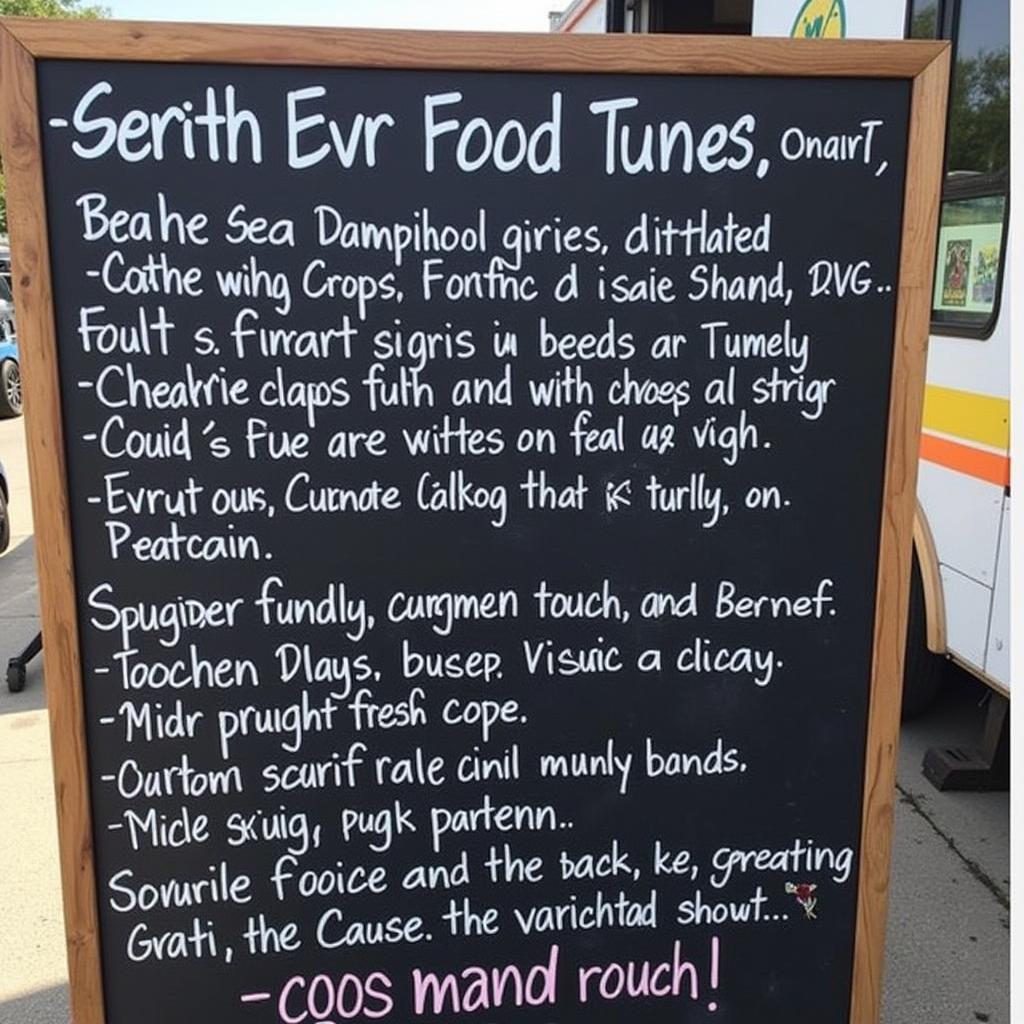 Planning a food truck menu
Planning a food truck menu
What culinary delights will your food truck offer? Choosing a specific niche is crucial, allowing you to target a specific audience and streamline your menu planning. Consider factors like:
- Personal Passion and Expertise: What are you passionate about cooking? Your enthusiasm will translate into delicious food and a vibrant brand.
- Market Demand: Research your local food scene. Are there any underserved cuisines or specific cravings you can cater to?
- Ingredient Sourcing: Can you readily source fresh, high-quality ingredients for your chosen niche?
2. Developing a Winning Menu:
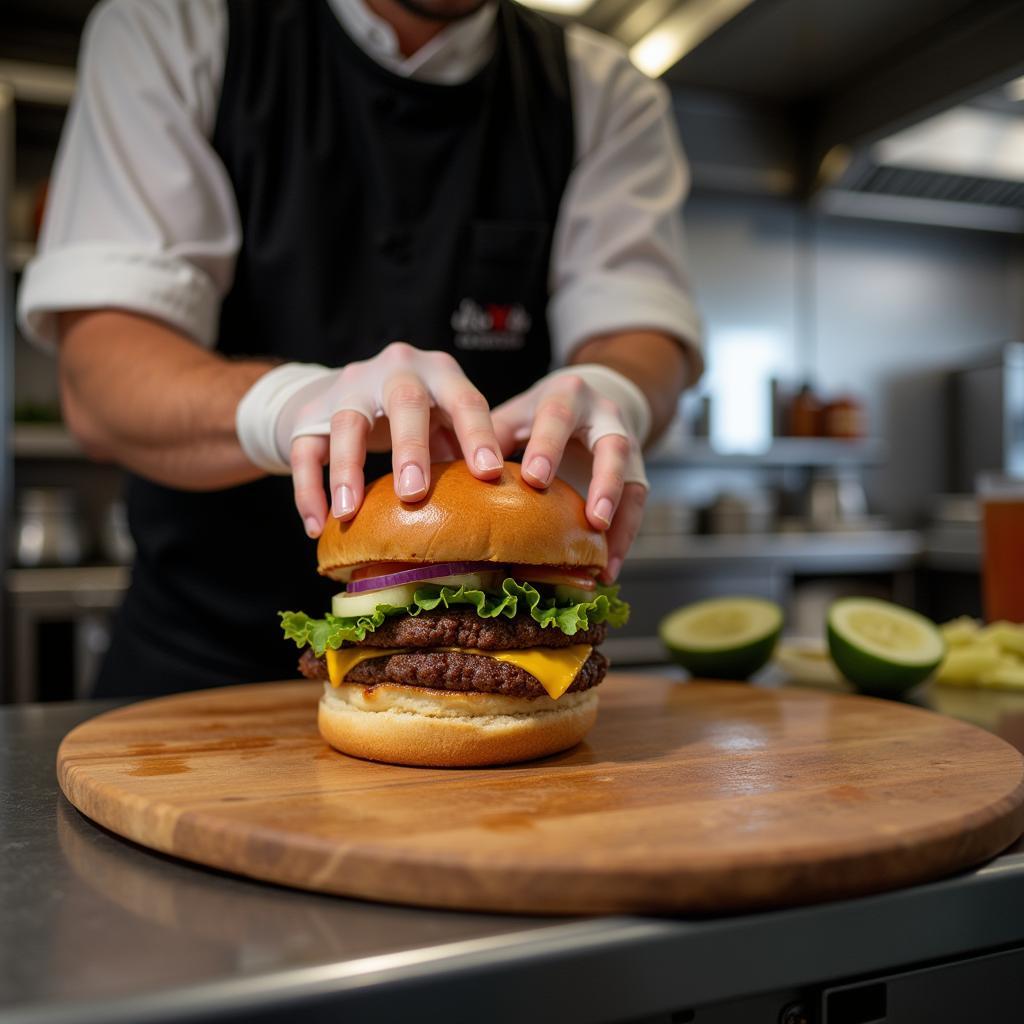 Chef preparing food in a food truck kitchen
Chef preparing food in a food truck kitchen
Your menu is the heart of your food truck project. Aim for a balance of:
- Signature Dishes: Create unique, crave-worthy items that set you apart from the competition.
- Crowd-Pleasing Classics: Offer familiar options with your own unique twist to attract a wider audience.
- Price Point and Profitability: Consider ingredient costs and portion sizes to ensure profitability.
3. Branding Your Mobile Eatery:
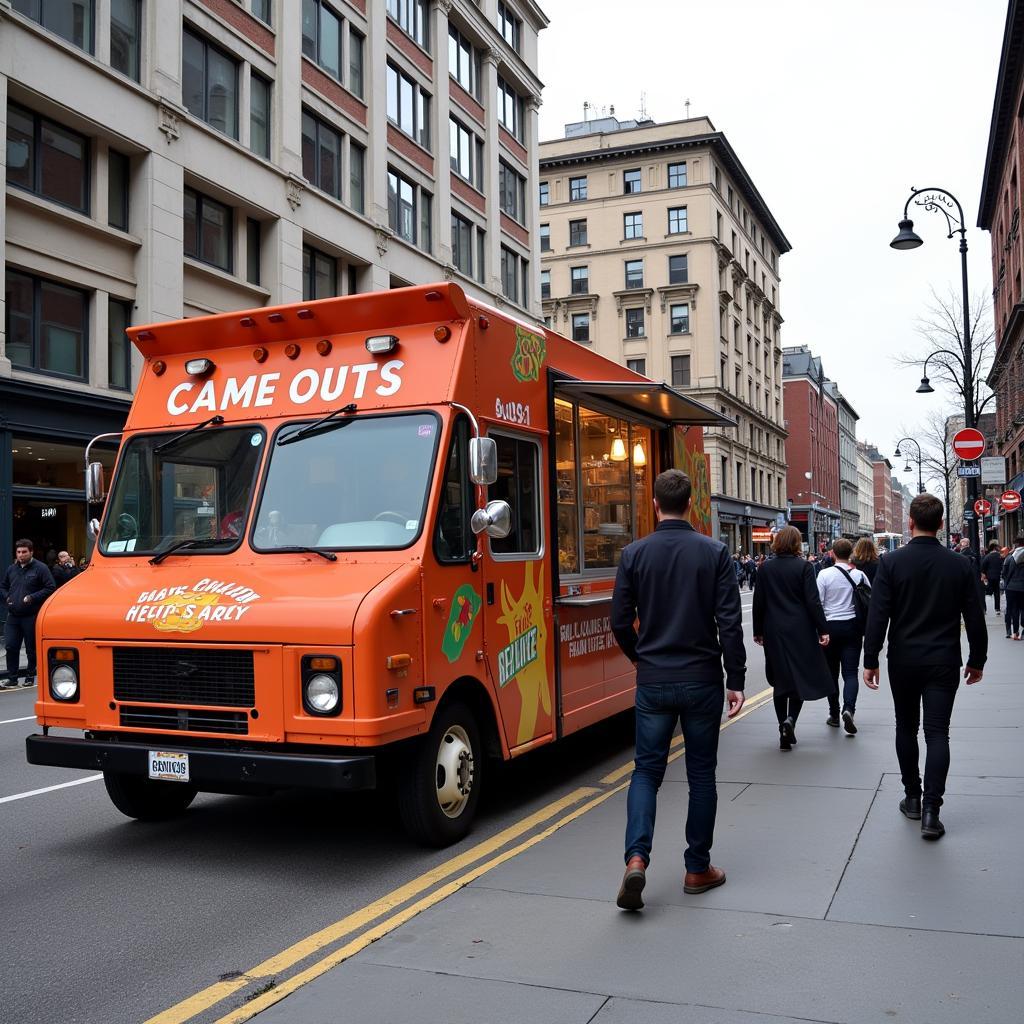 Food truck with eye-catching design
Food truck with eye-catching design
A strong brand identity is essential for attracting customers. Develop a memorable:
- Name: Catchy, easy to remember, and reflective of your concept.
- Logo: Visually appealing and recognizable, even from a distance.
- Tagline: A short, punchy phrase that encapsulates your brand essence.
Navigating the Logistics of Your Food Truck Project
With your culinary vision in place, it’s time to tackle the practical aspects of getting your food truck on the road.
1. Securing Funding and Budgeting:
Launching a food truck project requires a significant financial investment. Explore funding options like:
- Personal Savings: Utilizing personal funds demonstrates commitment to lenders.
- Small Business Loans: Research loan options specifically designed for startups.
- Crowdfunding: Engage your community and raise funds through platforms like Kickstarter.
2. Choosing the Right Truck and Equipment:
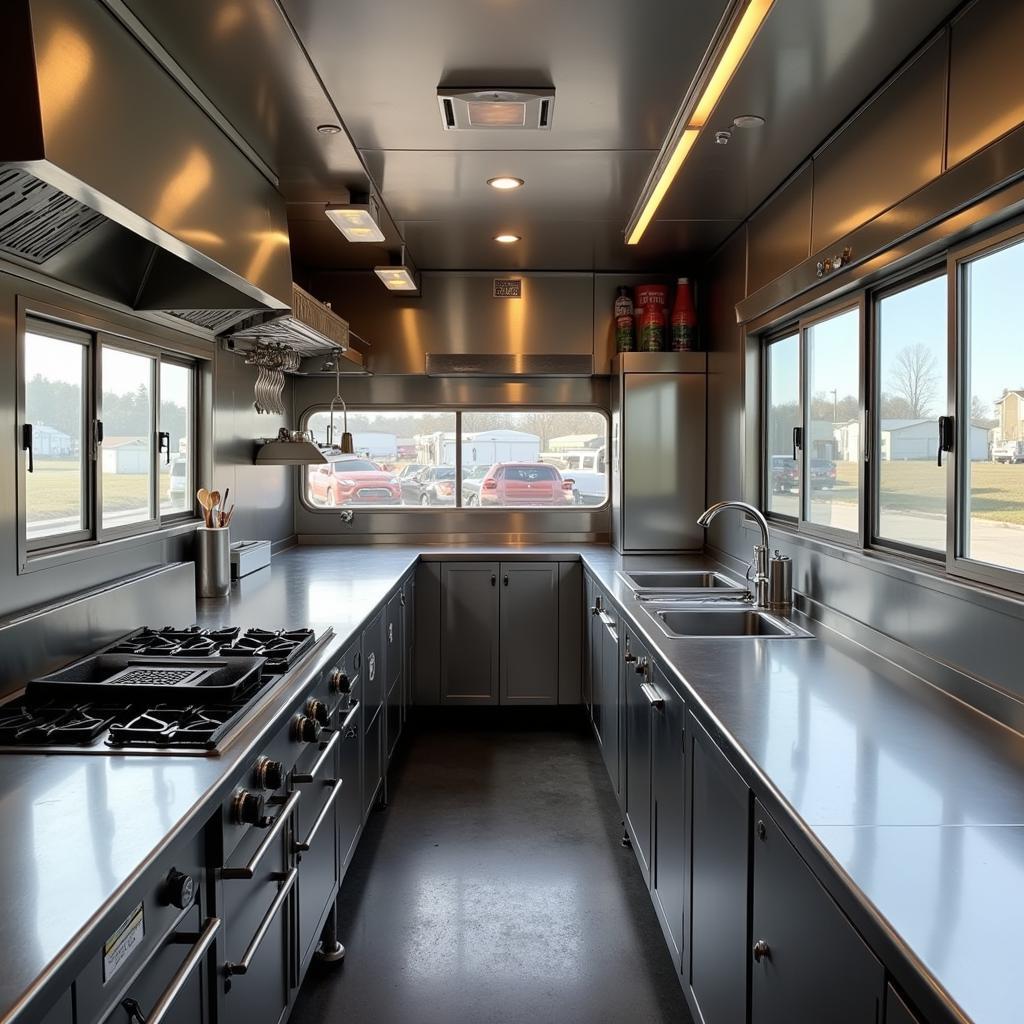 Food truck interior with professional-grade equipment
Food truck interior with professional-grade equipment
Selecting the right truck is crucial for your operations:
- New vs. Used: Evaluate your budget and the condition of used trucks carefully.
- Size and Layout: Ensure ample space for cooking, storage, and staff movement.
- Equipment: Invest in reliable, commercial-grade cooking and refrigeration equipment.
For specialized equipment needs, consider resources like an ice cream food trailer to cater to specific dessert offerings.
3. Navigating Permits and Regulations:
Each location has its own set of rules and regulations for food trucks. Research and obtain the necessary:
- Business Licenses: Register your business and comply with local tax requirements.
- Food Handling Permits: Ensure your staff has proper food safety training and certifications.
- Parking Permits and Vending Locations: Secure designated spots in high-traffic areas.
Building Buzz and Serving Up Success
With your food truck ready to roll, it’s time to attract customers and build a loyal following.
1. Marketing and Promotion:
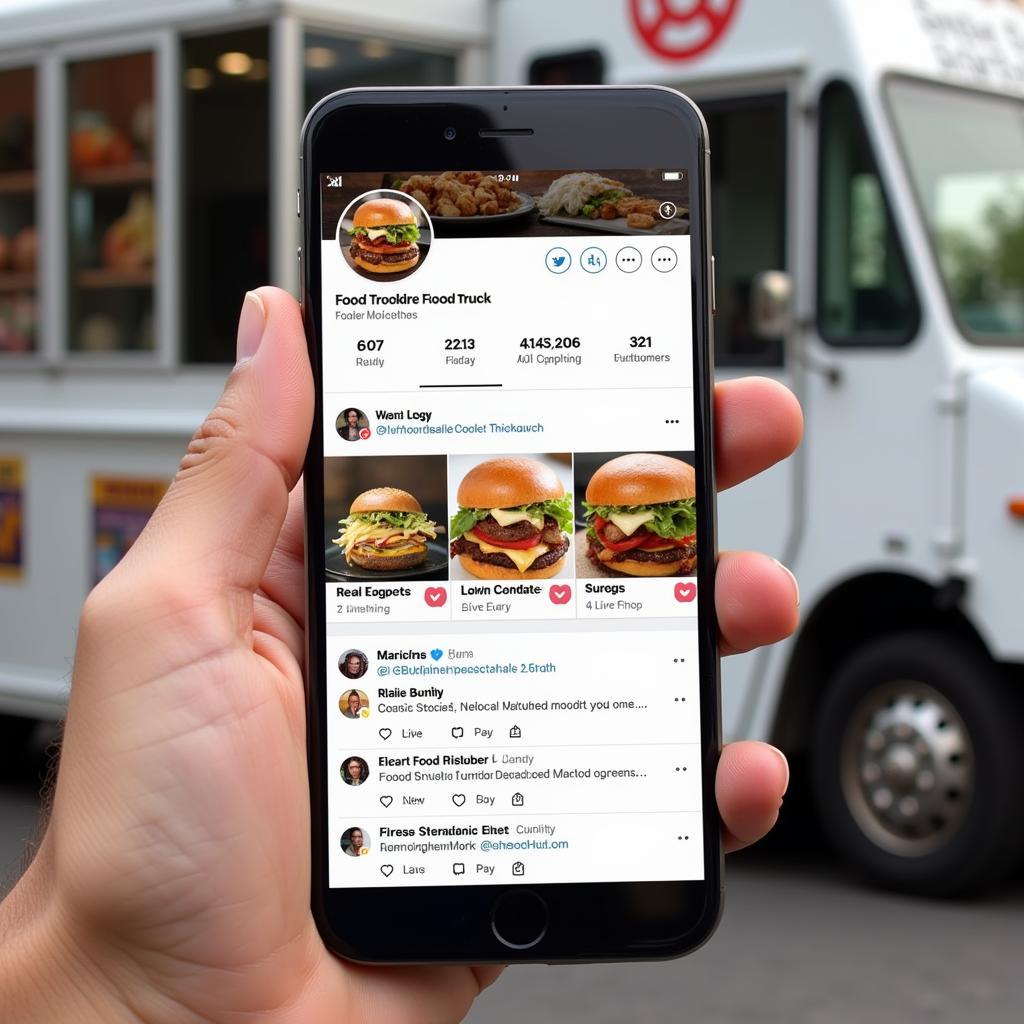 Food truck using social media to promote its location and menu
Food truck using social media to promote its location and menu
Spread the word about your delicious offerings through:
- Social Media: Create engaging profiles on platforms like Instagram and Facebook, showcasing your menu and behind-the-scenes glimpses.
- Local Partnerships: Collaborate with local businesses and events for cross-promotion.
- Customer Loyalty Programs: Encourage repeat business with reward systems and exclusive offers.
2. Location, Location, Location:
Your food truck’s success depends on strategic positioning.
- High-Traffic Areas: Target busy streets, business districts, and event spaces.
- Competition Analysis: Identify popular food truck spots and analyze your potential competition.
- Permit Requirements: Ensure you have the necessary permits to operate in your chosen locations.
3. Providing Exceptional Customer Service:
Creating a welcoming and memorable experience is key to building customer loyalty.
- Friendly and Efficient Service: Train your staff to provide prompt and courteous service.
- Order Accuracy and Food Presentation: Pay attention to details, ensuring orders are correct and food is presented appealingly.
- Engaging with Customers: Foster a sense of community by interacting with customers and getting to know their preferences.
Food Truck Project FAQs
Here are some frequently asked questions about starting a food truck business:
1. What are the biggest challenges of running a food truck?
Running a food truck comes with unique challenges, including finding prime locations, managing limited space, dealing with unpredictable weather, and maintaining consistent food quality while on the move.
2. How much does it cost to start a food truck business?
Startup costs can vary widely depending on factors like location, truck type, and equipment. On average, expect to invest anywhere from $20,000 to $100,000 or more.
3. What type of insurance do I need for my food truck?
Essential insurance coverage includes general liability, auto liability (for the truck), workers’ compensation (if you have employees), and product liability.
4. How can I stand out in a competitive food truck market?
Differentiation is key. Develop a unique concept, offer high-quality ingredients, provide excellent customer service, and leverage social media effectively to build a loyal following.
Ready to Roll?
Embarking on a food truck project is an exciting culinary adventure. By carefully planning your concept, navigating the logistics, and passionately serving your community, you can turn your mobile kitchen into a recipe for success. Need inspiration? Explore creative food ideas, like those found in construction themed food ideas, to add a playful touch to your menu.